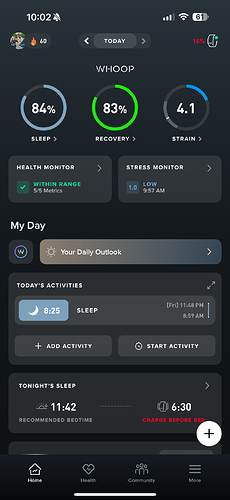I have Ehlers Danlos (lifelong), some autoimmune diseases, and disc Degeneration disease in my neck that were diagnosed in the last 5ish years. Currently on Plaquinel for all the autoimmune stuff and PT for my neck. Chronic fatigue and aches/pains are things I started dealing with in high school or so (early 40’s now).
Things that have helped me over the years (and I have tried many things).
- Eat real food. Stay away from ultra-processed anything, and avoid added sugars as much as possible.
- Make sure you are getting enough protein.
- If you haven’t, remove wheat/gluten from your diet for a month and see if you feel any differently. I do not have celiac, but I do have a sensitivity. If I get “glutened”, for me it shows up in terms of brain fog and fatigue.
- Check your sleep hygiene. Are your go-to-bed and wake-up times consistent? Are you getting sunlight early in the morning after you get up? Do you have a wind down routine in the evenings…dimming lights, adjusting screen settings?
- I supplement year round with Vitamin D, but getting in the actual sun makes a much bigger difference in my energy and alertness.
- Stay far away from alcohol
- Focus more on recovery type exercises; yoga, stretching, foam rolling, walking.
- See a PT for the daily aches and pains. Once your posture starts to suffer, it can make everything else in your body worse.
For me, yes and no, but mostly yes. Over the years, I have gotten really in tune with my body and how it feels. Most days, my pain is helped with exercise. I am pretty active; I shoot for 2 days a week of lifting, 20 mins in HR zones 4-5 (usually get there by jogging or spin bike), and I shoot for 3 yoga sessions. That is on top of daily barn chores, riding, and driving in addition to hiking/kayaking/biking with DH on weekends. There are days though when something feels off enough that I know not to push through.
One last thing that has really helped me, was I gave the 30 Day free trial with the WHOOP fitness monitor in June: https://www.whoop.com/us/en/whoop-trials/
It tracks your activity and breaks everything down into 3 scores; sleep, recovery, and strain. I do tend to get higher strain scores in part because of my health issues and it’s been really helpful in helping me feel better when to push and when to rest. It’s also got an AI coach that can sift through your data and answer questions and make recommendations which I find really helpful.

